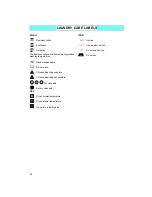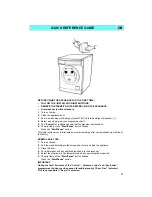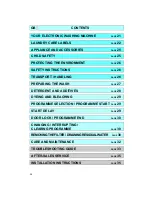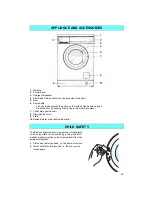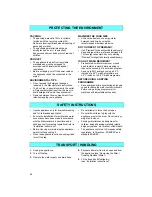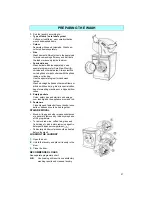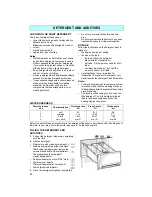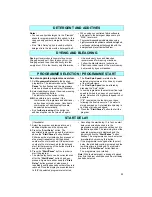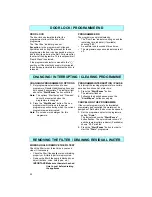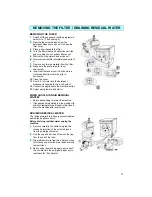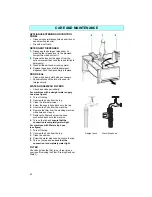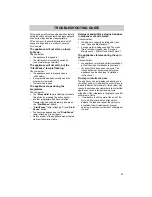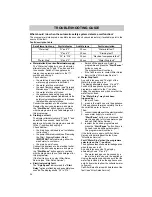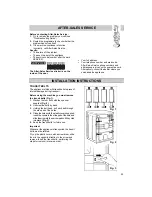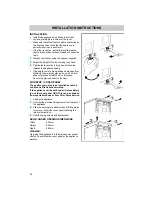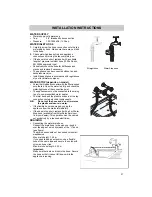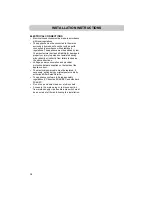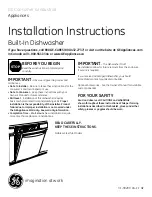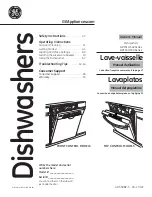
33
This washing machine is equipped with automatic
safety functions which detect and diagnose faults
at an early stage and react appropriately.
Often, however, the faults detected are small
enough to be solved in a matter of minutes.
For example:
The appliance will not start, no lamp
lights up.
Check whether:
•
the appliance is plugged in;
•
the wall socket is functioning correctly
(use a table lamp or similar).
The appliance will not start, but the
“Start/Pause” lamp is flashing.
Check whether:
•
the appliance door is properly closed
(child safety);
•
a programme has been selected and the
programme is started;
•
the water tap is open.
The appliance stops during the
programme.
Check whether:
•
the “Rinse Hold” lamp is flashing, terminate
this option by pressing the button again;
•
another programme has been selected.
Reselect the desired programme and press
the “Start/Pause” button;
•
“Start/Pause” lamp is flashing. Press “Start/
Pause” button;
•
the door was opened and the “Start/Pause”
lamp is flashing. Press it again;
•
Safety system of the appliance was activated.
See fault description table.
Detergent and additive product residues
in dispenser at end of wash.
Check whether:
•
the siphon is correctly installed and clean
(see “Care and Maintenance”);
•
enough water is being supplied. The mesh
filters could be clogged (see “Care and
Maintenance” / “Water Hose Mesh Filters”).
The appliance vibrates during the spin
cycle.
Check whether:
•
the appliance is level and solidly installed on
all four feet (see “Installation Instructions”);
•
the transit bolts have been removed. The
transit bolts must be removed before the
appliance can be used (see “Installation
Instructions”).
Final spin results are poor:
The appliance has an imbalance detection and
correction system. If individual heavy articles are
loaded (bathmat, bathrobe, etc.) this system may
reduce the spin speed automatically to protect the
appliance or even interrupt the spin cycle
altogether, if the imbalance is too great even after
several spin starts.
•
if the laundry is still too wet at the end of the
cycle, add smaller articles of laundry to
balance the load and repeat the spin cycle.
•
excessive foam formation may prevent
spinning. Ensure correct amount of detergent
is used.
TROUBLESHOOTING GUIDE


